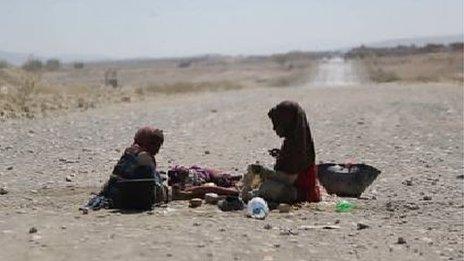Yemen conflict: At least 10,000 killed, says UN
- Published
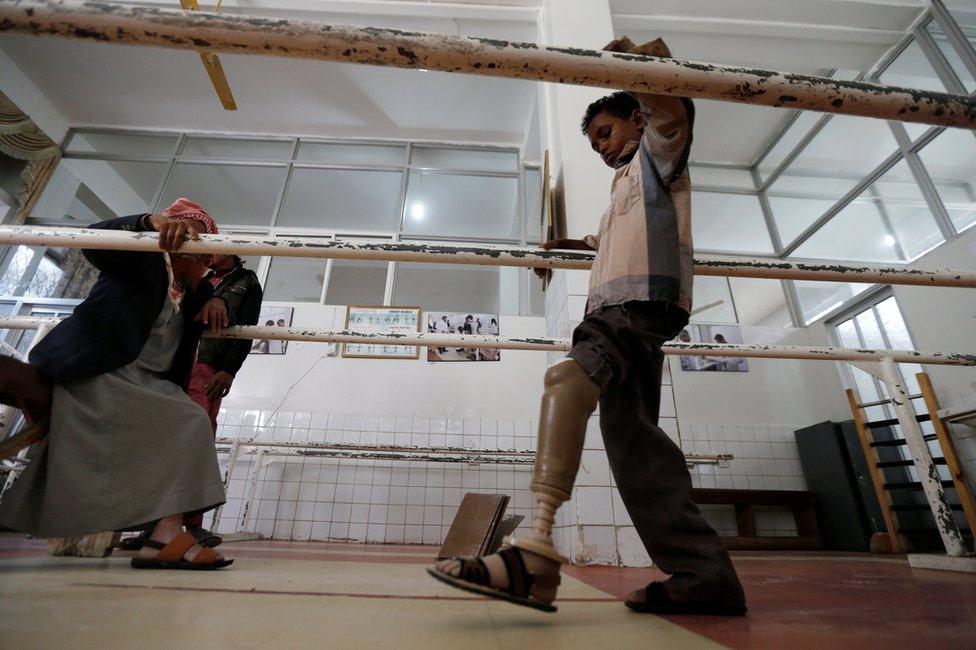
The UN did not say how many of the casualties were civilians
At least 10,000 people have been killed in the war in Yemen between Houthi rebels and the Saudi-led coalition supporting the government, the UN says.
The organisation said the death toll "underscores the need to resolve the situation" that has lasted for more than 21 months.
The news came as a UN envoy met President Abdrabbuh Mansour Hadi on Monday in the southern city of Aden.
The conflict between the Houthis and the government escalated in March 2015.
The coalition intervened militarily in an attempt to restore the internationally-recognised administration after Mr Hadi was forced to flee the country.

Read more

Since then, "the estimates are that over 10,000 people have been killed in this conflict and almost 40,000 people injured", UN humanitarian co-ordinator for Yemen Jamie McGoldrick told reporters in the capital Sanaa on Monday.
He did not provide a breakdown between civilians and combatants.
However, a UN report said, external community-level human rights monitors had reported 11,332 civilian casualties, including 4,125 killed, by the end of October 2016.
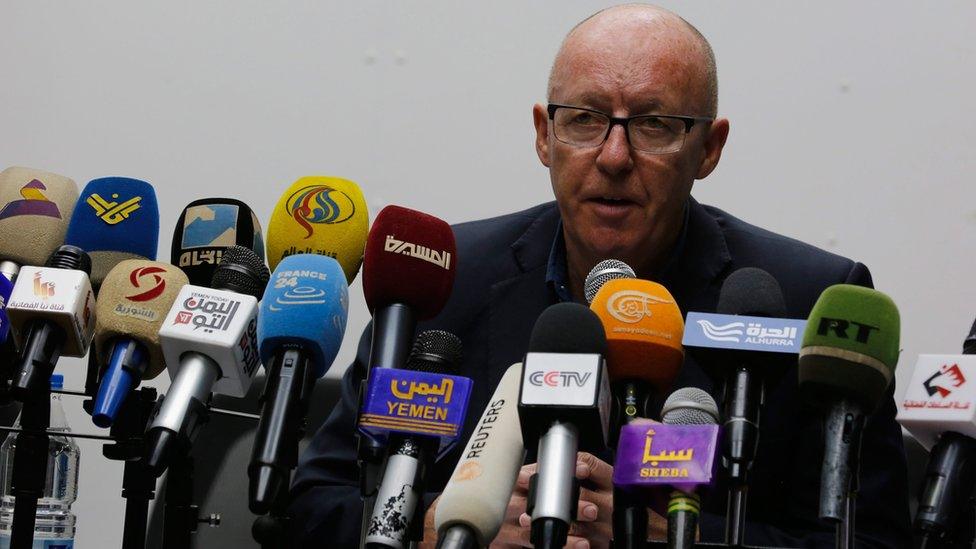
Jamie McGoldrick said almost 40,000 people had been injured in the fighting
Mr McGoldrick also said seven million people living in areas directly affected by the fighting were facing severe food shortages.
UN envoy, Ismail Ould Cheikh Ahmed, meanwhile sought to persuade the government to agree to a new cessation of hostilities and to resume peace talks with the Houthis and their ally, former President Ali Abdullah Saleh.
He was expected to present an amended roadmap for a political solution to the conflict, after Mr Hadi rejected one that would have seen his powers reduced in favour of a new vice-president who would oversee the formation of an interim government and a transition to elections.
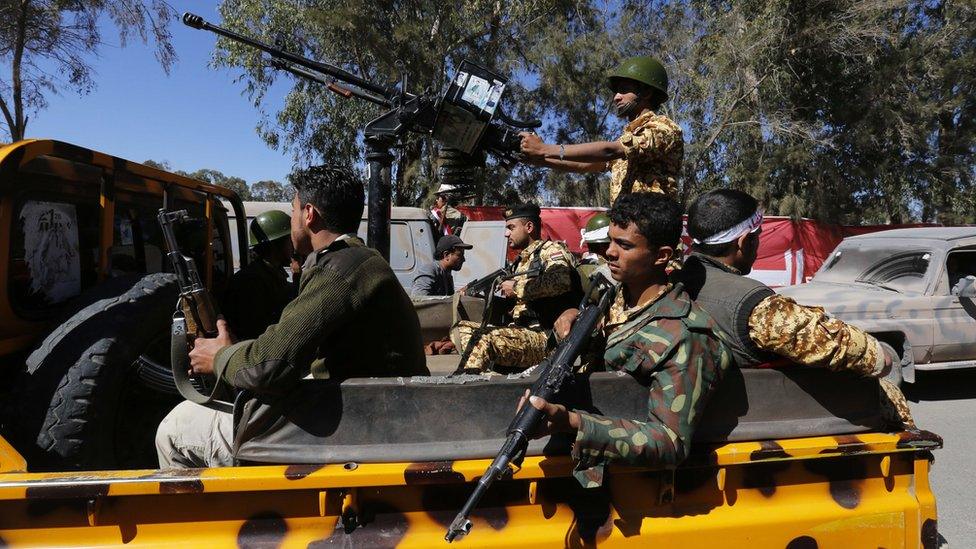
Houthi rebels and Saudi-led coalition forces have been fighting for more than 21 months
"The current political stalemate is causing death and destruction every day," Mr Ould Cheikh Ahmed said in a statement, external.
"A peace agreement, including a well-articulated security plan and the formation of an inclusive government, is the only way to end the war that has fuelled the development of terrorism in Yemen and the region," he added.
"I asked the president to act swiftly and engage constructively with the UN's proposal for the sake of the country's future."
Mr Ould Cheikh Ahmed is due to report to the UN Security Council later this month.
- Published14 April 2023
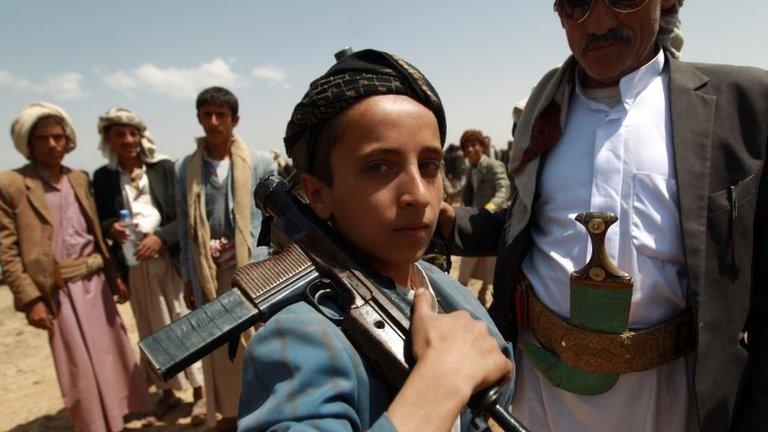
- Published21 October 2016
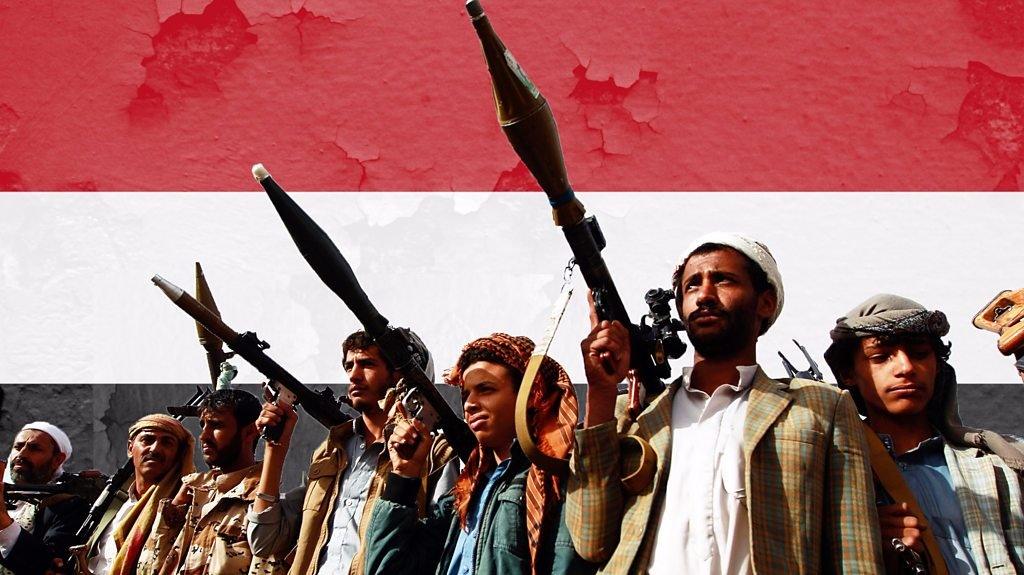
- Published12 December 2016
